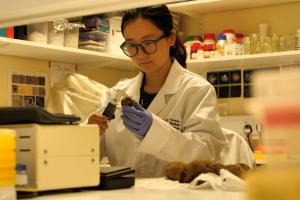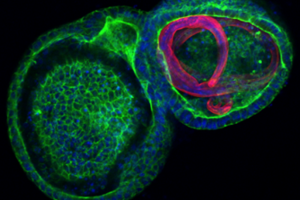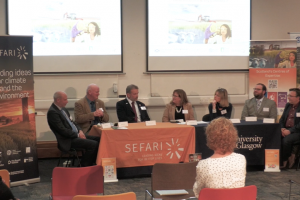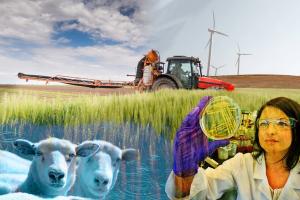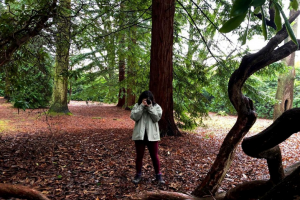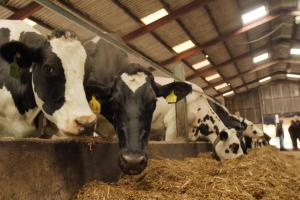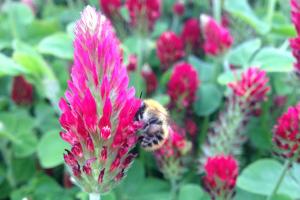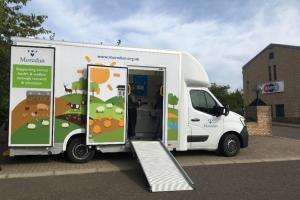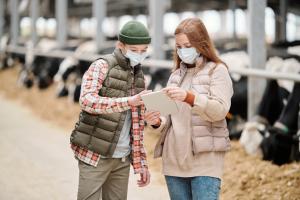Displaying 91 - 100 of 190
Here at SEFARI, we take pride in our partner institutes and their outstanding achievements in research and informing policy. We firmly believe that inequality in the sustainability sector must be addressed and are committed to using our platforms to showcase and commend remarkable women at all stages of their careers. Read on to celebrate the accomplishments of some of the outstanding SEFARI women.
The Moredun Research Institute (one of SEFARI’s members) alongside the Universities of Dundee, Edinburgh and Glasgow are forming a new and exciting network, called Scottish Parasitology Partnership in Research, Innovation, and Training (SPPIRIT), to support Scotland’s eminent parasitology research.
The climate emergency affects every part of our lives and collaboration within and across sectors is therefore key to addressing this crisis. With collaboration at their core, Scotland’s five Centres of Expertise (CoE) work together to connect research with, and respond to, policy needs across issues which affect the climate, water, animal and plant health, land and communities.
Even though COP26 is now over, there is still a strong focus on initiatives being taken by countries to address climate change. Scotland is committed to reaching net zero by 2045 and to delivering leadership and collaboration within the global response to tackling climate change.
In this blog, Lorna highlights her work in the creation of new resources which outline what is going on across the Centres of Expertise (CoE) to inform and support policy for climate action. Collation of this material from across the Centres was funded by SEFARI Gateway.
As the recent COP26 Gender Day in Glasgow has highlighted, there is much work to be done in increasing diversity and inclusion in the climate sector. Diverse voices are incredibly important in tackling all aspects of a changing climate, and these voices must be heard and valued. With this and a commitment to achieving a Just Transition to Net Zero in mind, SEFARI have asked me to share my experiences in this blog.
COP26, the United Nations Climate Change conference held in Glasgow, ended on Saturday the 13th of November. Since then, there has been a lot of stock taking as to what was achieved under the Glasgow Climate Pact. Several gains emerged in the first week of the conference, with the announcement of collective action on deforestation, coal, finance and methane.
Scotland’s pollinators are a vital part of the country’s biodiversity and crucial for agricultural productivity. Globally, 75% the world’s crops rely on animal pollinators and these crops account for 35% of global food production.
With the UN Climate Change Conference (COP26) underway, there is a spotlight on initiatives being taken by countries to address climate change. Do you want to know what Scotland is doing about it? Then join us on a virtual tour of some of SEFARI’s fascinating climate research.
In September, colleagues from the Moredun Research Institute, SEFARI Gateway, the Food and Drink Federation Scotland (FDF Scotland), Royal Highland Educational Trust (RHET) and Quality Meat Scotland (QMS) outlined a wealth of educational resources that cover the sustainability of key resources such as food, water, and energy. A key priority for the younger generation especially with COP26 on the horizon, and on our doorstep!
In this blog, we investigate how farmers interact on the online platform Twitter, with the aim of helping scientists to better facilitate mutual learning and support good farm practice.
